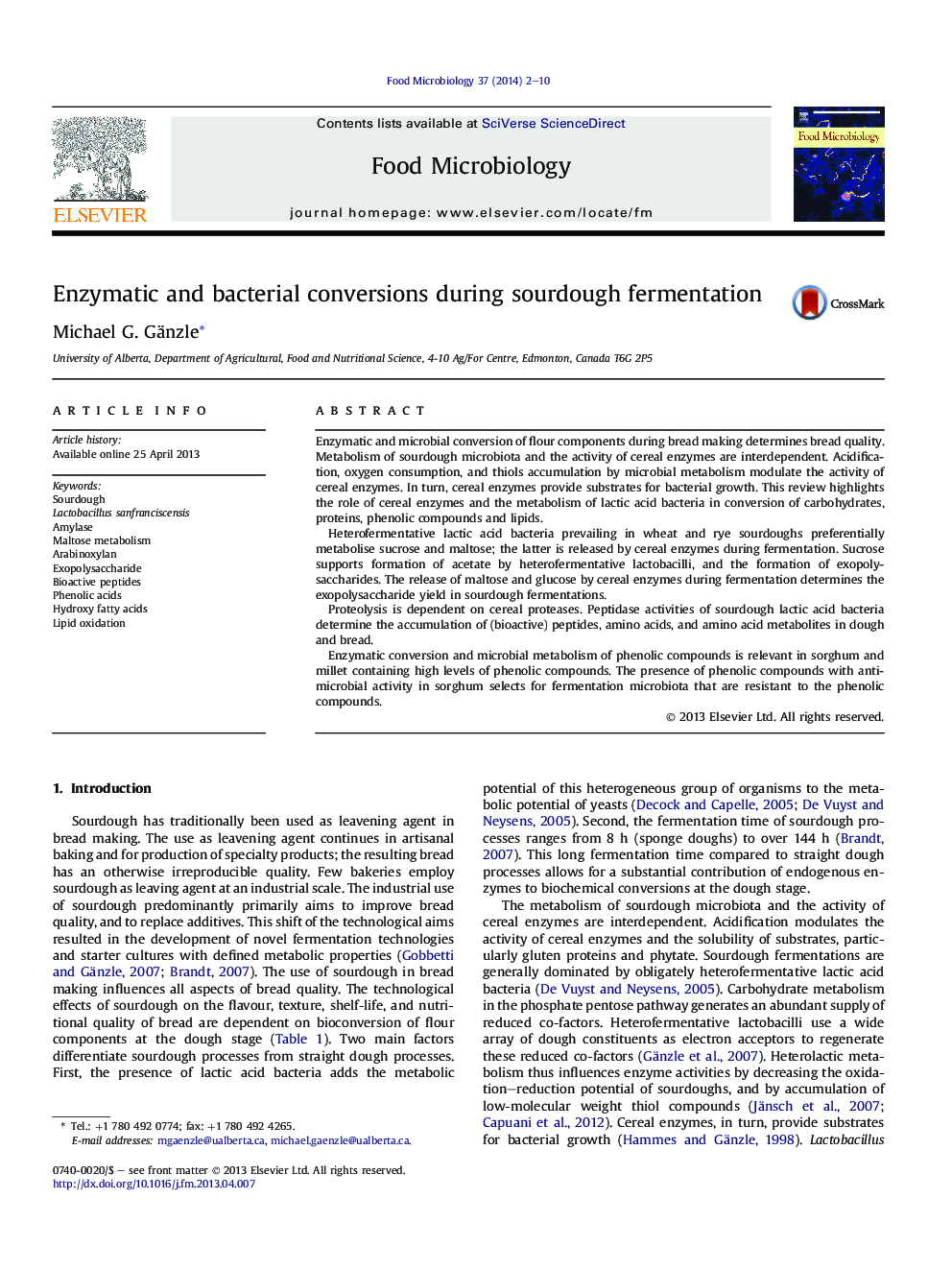| Article ID | Journal | Published Year | Pages | File Type |
|---|---|---|---|---|
| 4362953 | Food Microbiology | 2014 | 9 Pages |
•Cereal enzymes are important determinants of the microbial ecology of sourdough.•Enzymatic and microbial conversion of flour components determines bread quality.•Bacterial metabolism and cereal enzyme activity in sourdough are interdependent.
Enzymatic and microbial conversion of flour components during bread making determines bread quality. Metabolism of sourdough microbiota and the activity of cereal enzymes are interdependent. Acidification, oxygen consumption, and thiols accumulation by microbial metabolism modulate the activity of cereal enzymes. In turn, cereal enzymes provide substrates for bacterial growth. This review highlights the role of cereal enzymes and the metabolism of lactic acid bacteria in conversion of carbohydrates, proteins, phenolic compounds and lipids.Heterofermentative lactic acid bacteria prevailing in wheat and rye sourdoughs preferentially metabolise sucrose and maltose; the latter is released by cereal enzymes during fermentation. Sucrose supports formation of acetate by heterofermentative lactobacilli, and the formation of exopolysaccharides. The release of maltose and glucose by cereal enzymes during fermentation determines the exopolysaccharide yield in sourdough fermentations.Proteolysis is dependent on cereal proteases. Peptidase activities of sourdough lactic acid bacteria determine the accumulation of (bioactive) peptides, amino acids, and amino acid metabolites in dough and bread.Enzymatic conversion and microbial metabolism of phenolic compounds is relevant in sorghum and millet containing high levels of phenolic compounds. The presence of phenolic compounds with antimicrobial activity in sorghum selects for fermentation microbiota that are resistant to the phenolic compounds.
